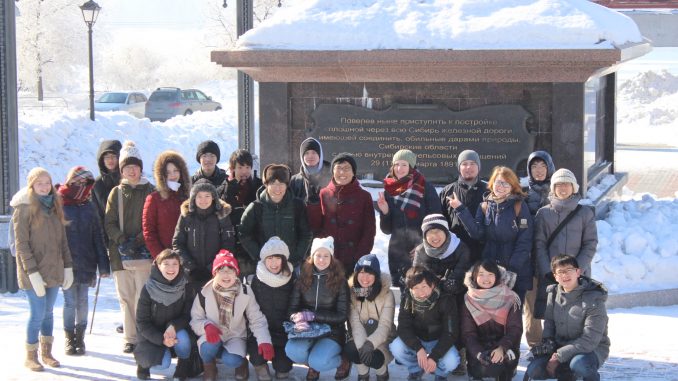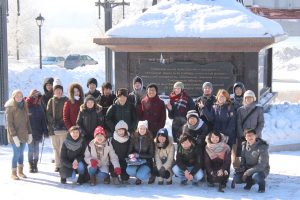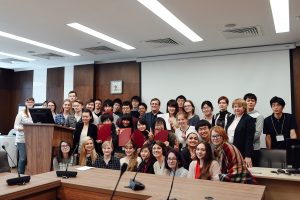
Between March 11 and 24, fifteen students from Tohoku University enjoyed the hospitality of Novosibirsk State University, where the Institute of Humanities treated their guests to a mixture of cultural and educational activities which helped to deepen the students’ appreciation of Russia, its culture and people. Among the varied educational activities prepared for the students were lessons in the Russian language and Russian culture, as well as a visit to the research institutes at the Siberian Branch of the Russian Academy of Sciences. The academic side of the trip was complemented by a chance to attend ballet, interact with Russian students at the university dormitories, and to enjoy the company of students of Japanese at the Siberia-Hokkaido Cultural Center.
Students at Novosibirsk State University were delighted to join in the activities for the duration of the program, taking every opportunity to support students from our university. A notable characteristic of the program is that student exchange between Russia and Japan is afforded a great deal of importance, with ample time set aside for cooperative project work as part of a collaborative environment.
This exciting opportunity for first and second year students of Tohoku University to sample the delights of Russia was the result of a cooperative educational program called the Tohoku University Cross-Cultural Program with Russia (TUCPR), part of the Re-Inventing Japan Project which is funded by the Japanese government. It follows a first exchange with Novosibirsk State University held in January 2015 and another in March 2016, this time with Moscow State University. The remaining participants are Far Eastern Federal University, the Far Eastern Branch of the Russian Academy of Sciences and the aforementioned Siberian Branch of the Russian Academy of Sciences.
The participating students enjoyed experiences not possible at home and through these gained a broader knowledge of Russia, learned the significance and importance of Japan-Russia relations, and developed a mutual understanding of their fellow students who are likewise responsible for the future prospects of both countries.


